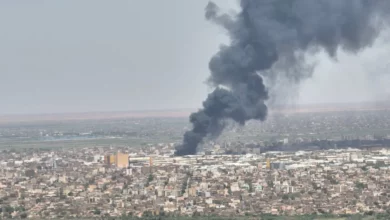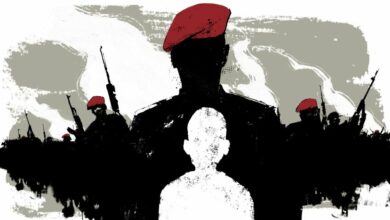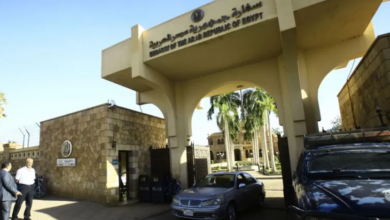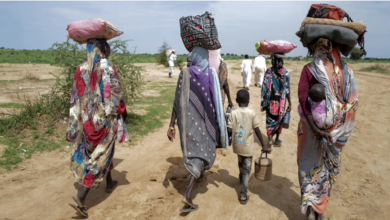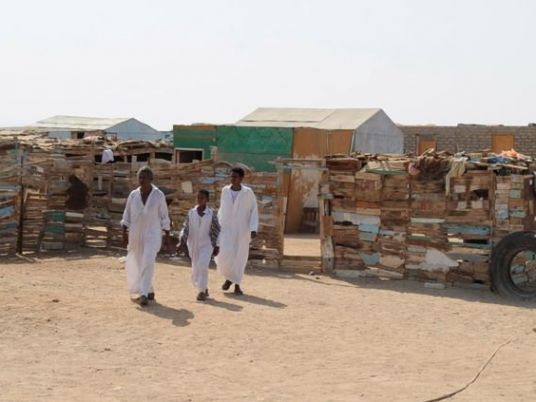
Rabie Hassan, director of the Sudanese Presidency’s Center for Future Studies, said in an interview with Al-Masry al-Youm that Halayeb is neither Sudanese nor Egyptian, and that the region should be developed jointly for the benefit the people of both countries.
He said that the Ethiopian Renaissance Dam will benefit Sudan and Egypt more than harm them, which is why Sudan supports Ethiopia.
He added that Sudanese-Egyptian ties would not develop unless they serve the interests of both sides.
He also said that reconciliation between the Egyptian regime and the Muslim Brotherhood is not impossible, but would not take place soon.
Q: What do you make of recent tension in Sudanese-Egyptian relations?
A: Although we always say that we have historical relations and joint interests, this is not translated into a real rapprochement.
Q: Why has tension escalated due to an individual case of a Sudanese national having been arrested in Cairo?
A: The Egyptian police torturing a Sudanese national means Sudanese are not welcome in Egypt. The pictures posted on social networking sites left a very negative impact.
I bet the Egyptian police cannot treat an American national the way they treated the Sudanese.
You should apologize for what happened and open a thorough investigation. We do not want anyone to use this to disrupt the relationship between Egypt and Sudan.
Q: But the Sudanese national went back on his words and chanted “Long Live Egypt” on TV, did he not?
A: You should have conducted an investigation and brought those responsible to account. Something like this is not tolerated in Sudan.
Q: But the authorities did investigate the incident.
A: Very well. The Sudanese Embassy should then follow up. This will calm the situation.
Q: How do you see Sudan’s position regarding the Renaissance Dam?
A: A dam on the Nile is a good thing for Sudan because it would control the devastating floods of the Blue Nile. It would also generate hydroelectric power for Sudan, but it may cause some harm if it deters the soil that is good for agriculture.
The Renaissance Dam has more benefits for Sudan and Egypt than damages, which is why Sudan supports Ethiopia. This can be proven by technical studies.
The dam has become a fact, and Egyptian and Sudanese interests are one.
Q: Do you have any objections to the dam?
A: Experts in Sudan do have certain technical objections that the studies should answer. Sudan should only support Ethiopia once the studies are completed and prove that there is no harm.
Q: Do think negotiations should continue despite the fact that construction was not stopped and the studies were not completed?
A: I think the ministers of all parties will arrive at a solution. Sudan is playing a role of political mediation and not technical. lf the technicalities fail, there would be a political conflict that the heads of state should resolve.
Ethiopia will not do harm except if this were the country's ulterior motive.
Q: What do you think of claims that Halayeb is a Sudanese region?
A: Halayeb is neither Sudanese nor Egyptian. It should be developed jointly for the benefit the people of both countries. We have a similar problem with South Sudan. The demarcation of borders in not a solution. It brings problems. What is more important is development for the people.
Q: Will the future bring good relations between Egypt and Sudan?
A: Not the way things are going at the moment. There are no joint projects. Each country is preoccupied with internal problems. How can we talk about Arab economic unity if we are unable to have one major project between just two countries? Personal relationships do exist between the two presidents, but ties will not develop if there are no projects that serve the real interests of the two countries.
Q: Why do you think the Brotherhood failed in Egypt?
A: It did not do well. People were disappointed after it fell. Then the media created a negative public attitude towards the group.
But I think the Islamist movement will recover. I do not think the supporters of the group will abandon it. To the contrary. I think they will stick to it, if not in a more extremist way.
Reconciliation between the Egyptian regime and the Muslim Brotherhood is not impossible. Reality will dictate it, yet not too soon.
Q: How can the regime integrate political Islam into politics?
A: This is not possible at the moment, except in individual cases like Abdel Moneim Abul Fotouh and Selim al-Awa. They can mediate between the Islamic groups and the government.
Q: Are you a member of the Muslim Brotherhood in Sudan?
A: Yes, I am a member of what is left of it. There is a historical relationship between the Muslim Brotherhood of Egypt and that of Sudan, for the group does not believe in borders between countries.
Q: What did the Brotherhood do wrong?
A: They should have not run for the presidency. And they should have involved all other political forces in ruling the country. The prime minister should have been from the opposition. Instead, they ruled alone. They have polarized the country.
The Brotherhood of Tunis learned this lesson and did not run for the presidency.
Q: Can Sudan mediate for reconciliation between the Muslim Brotherhood and the Egyptian regime?
A: Not at the moment. The relationship between the two countries is not very good now.
Q: What do you make of ISIS spreading in the Arab world?
A: ISIS is a bad product of global conflicts. They have destroyed Iraq and Syria. It will take a long time to bring those countries back.
Edited translation from Al-Masry Al-Youm

